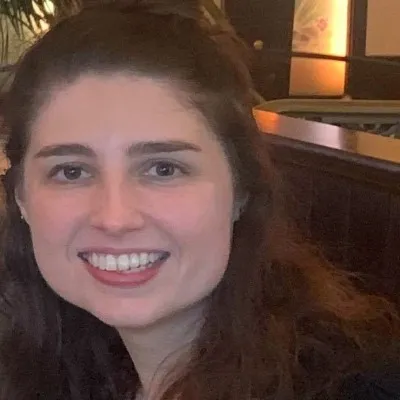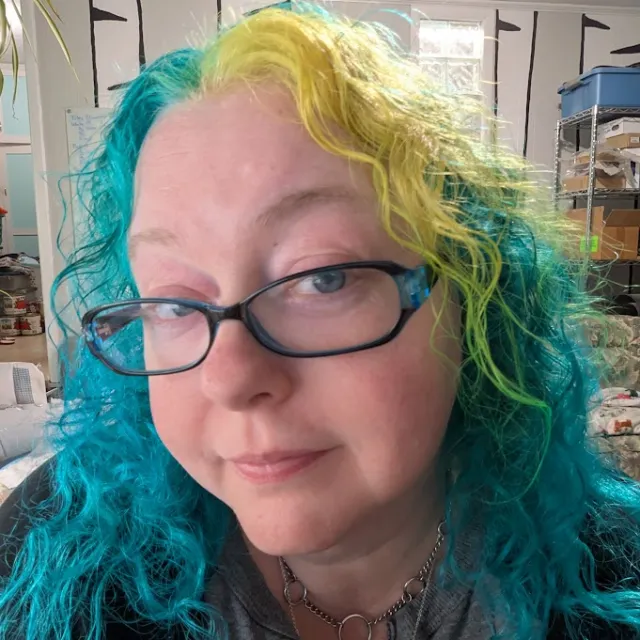How Much Down Payment Is Required for a House?
Along with closing costs, the down payment on a house can be a substantial upfront expense during the homebuying process. Find out how much is required for a down payment on a house, why you might want to make a larger down payment and which options you have for obtaining the necessary funds.
What is a down payment on a house?
A house down payment is the upfront cash you put down toward the home’s purchase price. The minimum down payment percentage depends on factors such as the mortgage program, your credit score and your chosen lender. Since this down payment helps offset some of the mortgage lender’s risk, it can improve your chances of mortgage loan approval. Additionally, the amount you put down contributes to your home’s equity.
Typically, when you make an offer on a home, you’ll put a specific amount of money into an escrow account as earnest money. This money is meant to ensure the seller that you will complete the transaction to the best of your ability. If the transaction moves forward normally, this money will then be applied to your closing costs and down payment at closing.
How much down payment is required for a house?
Like many homebuyers, you may think you need to put a hefty 20% down on a new home. However, based on data from the National Association of Realtors, the typical down payment on a house actually stands at 9% for first-time homebuyers and 23% for repeat homebuyers.
Your minimum down payment percentage ultimately depends on your financial situation, the property, your lender and the specific loan program. The lowest down payment on a house is none at all, and some government-backed mortgage programs offer this option for primary residence purchases. Other loans require down payments ranging from 1% to 20%, depending on the type of mortgage.
0% down mortgage loans
If you’re trying to find out how to buy a house with no money down, your options include the following government agencies: U.S. Department of Veterans Affairs (VA) loans and U.S. Department of Agriculture (USDA) loans. These loans target specific types of borrowers, which we'll discuss below.
VA loans
VA loans have no down payment requirement. However, you can only apply for a VA loan if you or your spouse has an approved military affiliation since the organization requires a Certificate of Eligibility. You may have to pay a VA funding fee based on the down payment amount, your military service record and the number of VA loans you've already taken out. The VA funding fee is similar to a mortgage insurance premium, but unlike most mortgage insurance, it is only paid at closing and will not create an additional monthly fee.
USDA Loans
USDA loans also have no minimum down payment, but you’ll need to pick a property in an approved rural location. Your options include USDA Single Family Direct Home Loans and the USDA Single Family Housing Guarantee Program, both of which have income, asset and property restrictions.
USDA Single Family Direct Home Loans have the lowest income limits and most restrictive property requirements. But if you qualify, you can also have your mortgage payments reduced temporarily. The USDA Single Family Housing Guarantee Program provides more options for buying or building a property, sets no property price limit and admits applicants who earn up to 115% of their area’s median income. However, it requires an upfront loan guarantee fee and an annual guarantee fee, which function as mortgage insurance and help the USDA to continue to providing loans to qualified buyers.
While VA and USDA loans are the largest categories of zero-down payment mortgages, some people may be eligible for other options. There are now lenders that will offer near- 100% financing on FHA loans, only requiring a $100 down payment.
Certain professions, including first responders, teachers, and physicians may qualify for zero-down mortgages with no private mortgage insurance through programs offered by some lenders. Additionally, some credit unions offer loans that don't require a down payment for their members.
1-3% down mortgage loans
Backed by either Freddie Mac or Fannie Mae, conventional mortgage programs for primary residences can allow for down payments as low as 3%, and they usually require good credit. The Fannie Mae HomeReady and Freddie Mac Home Possible programs don't have a first-time homebuyer requirement and can help you get a mortgage even with a low income. The income limit for these programs is 80% of your area's median income.
Some lenders, such as Rocket Mortgage, offer programs that give you 2% toward the minimum down payment so that you only need to come up with 1%. While these offers can come with restrictions on borrower income and the down payment amount allowed, they can make homeownership more accessible. Plus, lenders may offer other perks, such as waiving the private mortgage insurance (PMI), which usually applies to conventional mortgages.
If you’re unable to qualify for other programs, 3% down conventional programs exist, too. These include Fannie Mae's 97% Loan-to-Value (LTV) Standard program and Freddie Mac's HomeOne program. You’ll need to be a first-time homebuyer to qualify for HomeOne.
3.5% down mortgage loans
Backed by the government, Federal Housing Administration (FHA) loans require a minimum 3.5% down payment for a house as long as you have a credit score of at least 580. The minimum rises to 10% with a credit score of 500 to 579.
While these loans have lenient credit requirements and no income restrictions, they require upfront and ongoing mortgage insurance premiums. If you have less than a 10% down payment, the mortgage insurance will remain for the life of the loan; for borrowers with 10% or more down, mortgage insurance will only remain for 11 years.
10-20% down mortgage loans
You might make a 10% or higher down payment to make yourself more appealing to the lender or to qualify for a larger loan amount than a smaller down payment allows. And if you're buying something other than a primary residence, the lender will likely want 10% down for vacation homes and 15% down for investment properties. A 20% down payment on a conventional loan eliminates the need for private mortgage insurance.
You may also need a larger down payment — up to 20% or more — if you plan to take out a jumbo loan that exceeds the conforming loan limits that the Federal Housing Finance Agency has set. Depending on the location, these usually range from $806, to $1,209,750. These loans also require good credit, sufficient cash reserves and generally, more than one appraisal, since the types of properties purchased using jumbo loans may be unique and difficult to properly appraise. Some lenders do offer jumbo loans with only a 10% down payment requirement.
The pros of larger home down payments
If you can afford it, making more than the minimum down payment on a house has its advantages. You can have more manageable monthly payments, pay less in the long run and benefit from having more immediate equity in your home.
More affordable monthly mortgage payments
Since the down payment reduces the necessary mortgage amount, you’ll have a lower monthly mortgage payment if you put more money down.
For example, if you buy a $400,000 home and take out a 30-year mortgage with a 7% mortgage rate, a sample monthly payment — excluding PMI, taxes and insurance, which can all vary widely — may look like the following:
- 3% down: $2,742.71
- 5% down: $2,686.16
- 10% down: $2,544.78
- 20% down: $2,262.03
Not only does a smaller payment mean more room in your budget for other expenses, but it could also help reduce the risk of defaulting on your mortgage and losing the home. You may also find it easier to pay your mortgage off early.
Less interest paid
Mortgage lenders consider the down payment amount as one factor for determining mortgage interest rates. By putting more money down, you reduce the risk to the lender, who may reward you with a lower interest rate. While these interest savings especially add up over time, the lower rate matters for your closing costs as well since these include some prepaid interest.
Higher upfront home equity
Your home’s equity is what you have when your home’s mortgage is subtracted from your home’s appraised value. By providing a larger down payment, you have access to more equity immediately, making it easier to sell your home in the near-term should it come to that. Having more equity also means you have something to borrow against should you choose to use a second mortgage for home improvements.
Although it’s possible to be “underwater” on your mortgage – a situation where you will owe more on your home than it’s worth – historically, if you stay in your home, this situation will right itself over time as market conditions improve.
Lower fees
Some mortgage programs require upfront or ongoing fees that you can reduce or eliminate with a big enough down payment. For example, the VA funding fee goes down as long as you make a 5% minimum down payment. You can also avoid having to pay private mortgage insurance for conventional loans if you put down 20%.
More appealing offer
Larger down payments may also sway home sellers confronted with multiple offers. As the housing market has become more competitive, many prospective buyers may find that a larger down payment may help them edge out the competition by making their offer more attractive to the sellers.
The cons of larger home down payments
While making the ideal down payment for a house offers financial benefits, having the cash tied to the home comes with drawbacks, including:
Lower cash reserves for emergencies
By using a large portion of your savings for your down payment, you could experience financial struggles if a job loss or other emergency occurs. You may end up needing to borrow money to cover unexpected expenses or even default on your mortgage if you run out of ready cash for your monthly payments. To reduce the risk, make sure you have a sufficient emergency fund before purchasing a home.
Potential delays for home shopping
If you use a down payment calculator, you’ll see how large the target amount can be. Obtaining this lump sum may require delaying your home-buying plans for a long time in order to build up enough cash.
In the meantime, property prices or interest rates could rise, or home inventory might fall, and you can’t find what you want. If you currently rent, delaying a home purchase means not reaping the benefits of owning, such as building up equity and having more stability and control over your home.
Less cash for other goals
A high down payment means you won't have that cash to use for other goals. This could mean having to wait to pay down other debts or not having enough to save for your retirement or make home renovations. A lower down payment could allow you to accomplish multiple goals.
How to come up with a down payment for a house fast
Down payments and closing costs can amount to tens of thousands of dollars, meaning there are very few ways to come up with a down payment fast. However, you may be able to utilize programs designed to help with down payment assistance which are frequently provided by state or local programs. This information is available online by searching for “down payment assistance programs in [my state].”
If your employer offers 401(k) retirement plans, you may also be able to withdraw your contributions to use as a down payment, but be aware that there may be tax consequences for doing this. If borrowing against your 401(k) is an option for you (ask your lender), there are fewer pitfalls and you’ll end up rebuilding your 401(k) over time.
In addition, some loan programs will allow you to accept gift money from family members or close friends, provided there are no expectations that they will be repaid. It must be a gift. The money has to be able to be traced, so your parents will have to have kept it in a bank or investment account, rather than in a jar buried in their garden.
Can you buy a house without a down payment?
You might be able to buy your first home without a down payment if you qualify for a VA or USDA loan. Otherwise, research down payment assistance programs that may cover the minimum down payment for your type of loan. Just keep in mind that you’ll still need funds to cover your closing costs. Some programs may allow you to include your closing costs in the mortgage, but carefully consider if you’d like to pay those off over 30 years, including the interest.
How to buy a house with low income and no down payment
USDA mortgages target homebuyers with no down payment funds and low incomes. If you don’t qualify for one, you could consider a co-borrower with sufficient income.
As long as you don’t need to purchase a home immediately, you can get more loan options if you work on your finances. Some actions to take could include reducing other debts, raising your income, improving your credit and seeking other potential down payment sources. Some of the best mortgage lenders have resources you can use to identify assistance programs available in your area.
Who gets the down payment on a house?
At the time of closing, you’ll use a cashier’s check or wire transfer to provide the down payment to the settlement agent. The home’s seller eventually gets the down payment and other money left over from the home’s sale price after reductions for costs such as their past mortgage payoff, real estate agent's commission and other fees.
Summary of Money's how much is required for a down payment on a house
If you plan on buying a house with a small or no down payment, carefully explore your mortgage options and understand the ongoing costs. A low down payment may get you a home faster, but it can also mean additional costs such as private mortgage insurance or a higher upfront fee for certain mortgage programs. A large down payment can offer long-term savings and lower payments, but it leaves less money available if you experience any hardship. Work with your lender to explore the pros and cons of your options and determine what works best for you.



